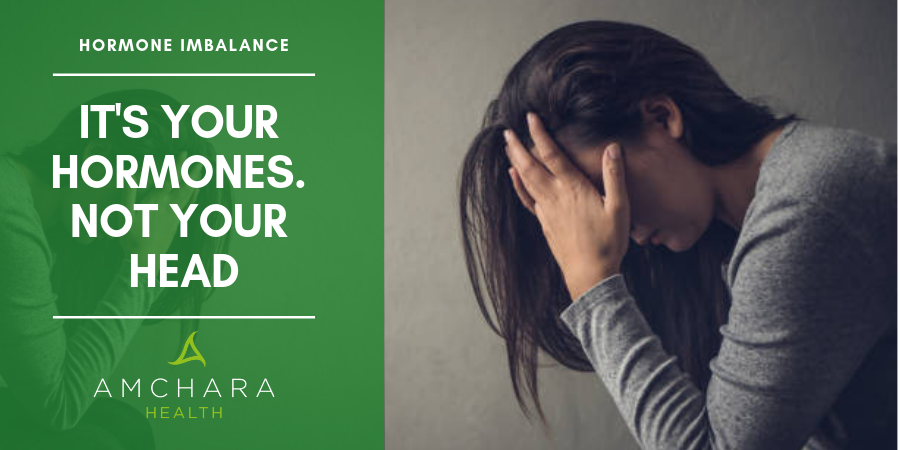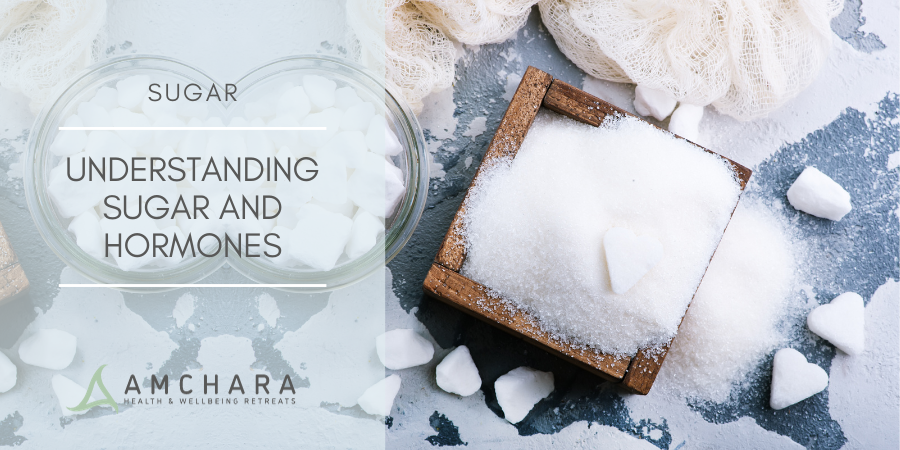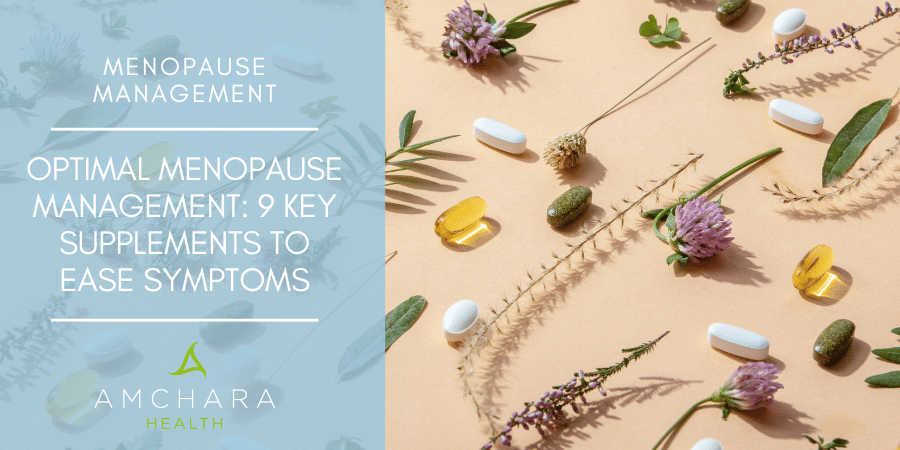Symptoms | Hormonal imbalances | PMS | Menopause | Hypothyroidism | Stress | Nutritional support | Supplemental support | Lifestyle advice | Resources & help | Free consultation
According to the World Health Organization (WHO), depression is the most common illness worldwide and the leading cause of disability. It is estimated that 350 million people are affected by depression, globally.
But what causes it? Although depression may never fully be understood, there is evidence to suggest that hormone imbalances can be a major contributing factor.
Our mission is to provide you with both insightful information and evidence-based content, all orientated towards the Personalised Health approach, with actionable knowledge and tips to help you on your journey to optimal health.
In this article we discuss the varying factors that might contribute to depression and how hormones may be implicated.
Depression is remarkably common, affecting approximately one in five adults in the Western world. It is considered a disease that could eventually pose a greater burden on the health industry than heart disease and tuberculosis. The effects of depression can be mild, moderate or extreme and the causes are multifactoral. Experts suggest that medications, genetic vulnerability, biological, environmental, and psychosocial factors can all play a part.
There are a wide range of symptoms and some functional disabilities that characterise depression.
Typical symptoms
-
Loss of appetite
-
Unexplained weight loss
-
Persistent sadness
-
Negative thoughts
-
Feelings of hopelessness
-
Restlessness
-
Insomnia or excessive sleeping
-
Physical inactivity
-
Decrease in libido
-
Lethargy
-
Lack of energy
-
Poor concentration
-
Difficulty making decisions
-
Lack of interest or pleasure in usual activities
-
Guilt and low self-esteem
Symptoms can vary between individuals and it is important to seek medical guidance to rule out other possible health conditions.
Depression and hormonal imbalances
While researchers strive to understand the full complex biology of depression, a lot is already known about the link to hormone imbalance. Evidence suggests that hormonal changes may promote the onset of depression. Hormones that are out of kilter are known to lead to significant fluctuations in moods often brought about by changes in the central nervous system, altered metabolism and by the action of hormones within the cells.
These factors point to the endocrine system as a partial player in depressive episodes. Imbalances of key endocrine hormones such as corticotrophins, oestrogen, progesterone and thyroid may have a significant impact on the development of depression.
Given that these hormones are essential for the normal function of the metabolism, it is likely that any imbalance may contribute to the development of mental health issues.
Some of the key health conditions that are linked to hormone imbalance and depression include:
-
PMS
-
Postnatal depression
-
Menopause
-
Hypothyroidism
-
Stress
PMS and postnatal depression
On a worldwide scale, the prevalence of depression amongst young adolescent females appears to be rising. Epidemiological studies suggest there is a higher risk for major depressive disorders in women than men – this disparity begins at puberty suggesting a significant link to hormonal changes.
In fact, some research shows that twice as many women as men suffer from depressive disorders, which appears to be linked to their reproductive cycle. This is possibly because women undergo constant hormonal influences during their reproductive years.
Evidence points to sex hormones because they affect mental status, mood and cognition, particularly oestrogen and progesterone which are responsible for female sexual development and menstruation.
Because hormones and neurotransmitters share common pathways and receptor sites in sections of the brain that control mood, it is thought that women sufferring from PMS may be more susceptible to depressive symptoms.
Progesterone and oestradiol are also thought to be implicated in the depression women experience after childbirth. Many women experience ‘baby blues’ at this time, but postnatal depression is significantly more severe. It has been suggested by some scientists that postnatal depression is caused partly by sudden changes in progesterone and oestradiol levels immediately after giving birth.
Women experiencing depression at these reproductive points in their life may have a heightened sensitivity to intense hormonal fluctuations.
Menopause
The menopausal transition seems to represent a period of time during which some women might be more vulnerable to the development of depressive symptoms and depressive episodes. Approximately 20% of women have depression at some point during the menopause. This risk seems to increase during the perimenopause (menopause transition) and decrease post menopause.
During this transition there are a number of hormonal changes that may contribute to depression. Women as well as men produce the hormone testosterone, which naturally declines around the menopause. Decreasing levels of testosterone have been linked to fatigue, a loss of libido and depressive symptoms. Low oestrogen levels are also thought to contribute to depression, possibly because oestrogen facilitates the actions of serotonin and norepinephrine – both neurotransmitters that raise mood.
Serotonin is a chemical that has a wide variety of functions in the body but is often referred to as the ‘happy hormone’ because of its influence on mood and wellbeing.
Recent research has shown that oestrogen pays a key role in the central nervous system affecting the hypothalamus, hippocampus and cerebellum – regions of the brain where most cognitive functions and mood are controlled.
Hypothyroidism
Depression, mood swings, anxiety and irritability are common symptoms of hypothyroidism and as such, a relationship between low thyroid function and depression has been assumed for years. The importance of thyroid hormones on brain development and function are evident by the devastating neurological consequences of severe iodine deficiency and untreated hypothyroidism.
Animal studies have identified that serotonin levels in the brain increase after administration of the thyroid hormone T3. A reduction in thyroid hormones is also directly linked to a decrease in serotonin levels.
Thyroid hormones are sometimes prescribed alongside antidepressant medications to improve mood. It is thought that the thyroid drugs boost chemical activity in the brain that improves mood and concentration.
Stress
One of the medical causes frequently cited for depression is the overproduction of stress hormones. Evidence suggests that if stress is continued or prolonged it can result in adverse effects on many systems in the body including, the immune, neuroendocrine and central nervous system.
One study has identified that prolonged exposure to the stress hormone cortisol contributes to symptoms of depression. According to other research, depressed people often have higher levels of cortisol in their blood circulation, which is thought to decrease serotonin – manifesting in low moods and depression.
It is also known that prolonged stress can cause insomnia. The importance of sleep for restoring the body implies that chronic insomnia is likely to create a significant pathway to disease.
Insomnia and depression often go hand in hand. Several studies show that insomnia is a risk factor for the onset of depression and for worsening depression.
Nutritional support
Nutrition and depression are intricately and undeniably linked, as suggested by the mounting evidence by researchers in neuropsychiatry.
Depleted nutrient levels can have a significant effect on brain chemistry. Supporting thyroid, adrenal and brain function through nutrition can help to balance hormones and reduce the risk of depressive symptoms.
-
Increase fibre to aid the elimination of used hormones.
Foods rich in fibre such as broccoli, green beans, pulses, lentils, beans and bananas are also rich in chromium and B vitamins which enhance mental processes.
-
Increase vegetables and dark green leaves which are rich in magnesium – a mineral that may play an important part in the cause of depression and anxiety.
Research has established a relationship between depleted levels of magnesium in stress and depression.
-
Eat a couple of servings a week of oily fish such as salmon, mackerel, sardines, fresh tuna and herrings.
Oily cold water fish contain high levels of omega-3 essential fatty acids, known to play a critical role in the development and function of the brain.
Emerging research suggests that omega-3 fatty acids may be of therapeutic value in the treatment of depression.
-
Ensure you get enough high quality complete proteins such as meat and eggs, which contain all the essential amino acids needed for adequate brain neurotransmitter production.
-
The brain relies on a good supply of carbohydrates to function. The production of brain chemicals serotonin and tryptophan that promote the feeling of wellbeing are triggered by carbohydrate rich foods.
It is suggested that low glycemic index (GI) carbohydrates, such as some fruits and vegetables as well as whole grains, are more likely to provide a moderate but lasting effect on brain chemistry and mood.
-
Include seaweed, fish and eggs in your diet to top up your iodine levels – essential for a fully functioning thyroid gland.
-
Selenium is also needed to maintain optimal thyroid hormone function. Brazil nuts, sardines and eggs are good sources of this important mineral.
-
Avoid sugar and stimulants such as tea, coffee and alcohol, which affect the adrenal glands and may contribute to leaching important nutrients from the body.
READ: BBC News: Mediterranean diet ‘may help prevent depression’
Supplemental support
-
B Complex vitamins – especially B3 and B6 to support neurotransmitter activity in the brain.
-
Chromium – there are many studies recording the association between chromium and depression.
-
Essential fatty acids – such as omega-3 fish oils have been shown to help balance mood.
-
St John’s Wort – a herbal remedy that helps to gently raise serotonin levels, St John’s Wort has been used traditionally for low mood.
-
5-HTP – an amino acid that increases production of serotonin in the brain.
-
A multi-vitamin and mineral complex – can help support individuals with poor nutritional status.
-
Phenylalanine/tyrosine – helps to maintain motivation and drive.
-
Magnesium – requirement increases 5 to 6-fold in times of stress.
-
Vitamin C – is significantly depleted during the stress response.
Lifestyle advice
-
Maintain a regular exercise routine which is known to stimulate a positive mental state. 30 minutes of sustained exercise that raises the heart rate such as brisk walking is recommended at least 3 times a week.
-
Aerobic exercise may help against mild depression since it raises endorphin levels and stimulates the neurotransmitter norepinephrine, which is related to mood.
-
Take 10-15 minutes out of every day to practise relaxation or meditation techniques to help manage stress. Yoga and Tai Chi are particularly effective.
-
Because sleep has a significant effect on mood, you need to make getting good quality sleep a priority.
-
Try to maintain strong relationships and social support networks as these help to reduce isolation and loneliness, both key risk factors for depression.
We’re dedicated to providing you with both insightful information and evidence-based content.
Did you find this article useful?
Please share your thoughts in the comments.
Websites offering support and information
Anxiety UK
Charity providing support if you’ve been diagnosed with an anxiety condition.
Phone: 03444 775 774 (Mon-Fri, 9.30am-5.30pm)
Website: www.anxietyuk.org.uk
Bipolar UK
A charity helping people living with manic depression or bipolar disorder.
Website: www.bipolaruk.org.uk
Depression Alliance
Charity for sufferers of depression. Has a network of self-help groups.
Website: www.depressionalliance.org
Mind
Promotes the views and needs of people with mental health problems.
Phone: 0300 123 3393 (Mon-Fri, 9am-6pm)
Website: www.mind.org.uk
PAPYRUS
Young suicide prevention society.
Phone: HOPElineUK 0800 068 4141 (Mon-Fri,10am-5pm & 7-10pm. Weekends 2-5pm)
Website: www.papyrus-uk.org
Samaritans
Confidential support for people experiencing feelings of distress or despair.
Phone: 116 123 (free 24-hour helpline)
Website: www.samaritans.org.uk
YoungMinds
Information on child and adolescent mental health. Services for parents and professionals.
Phone: Parents’ helpline 0808 802 5544 (Mon-Fri, 9.30am-4pm)
Website: www.youngminds.org.uk






